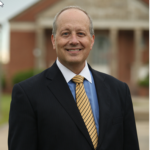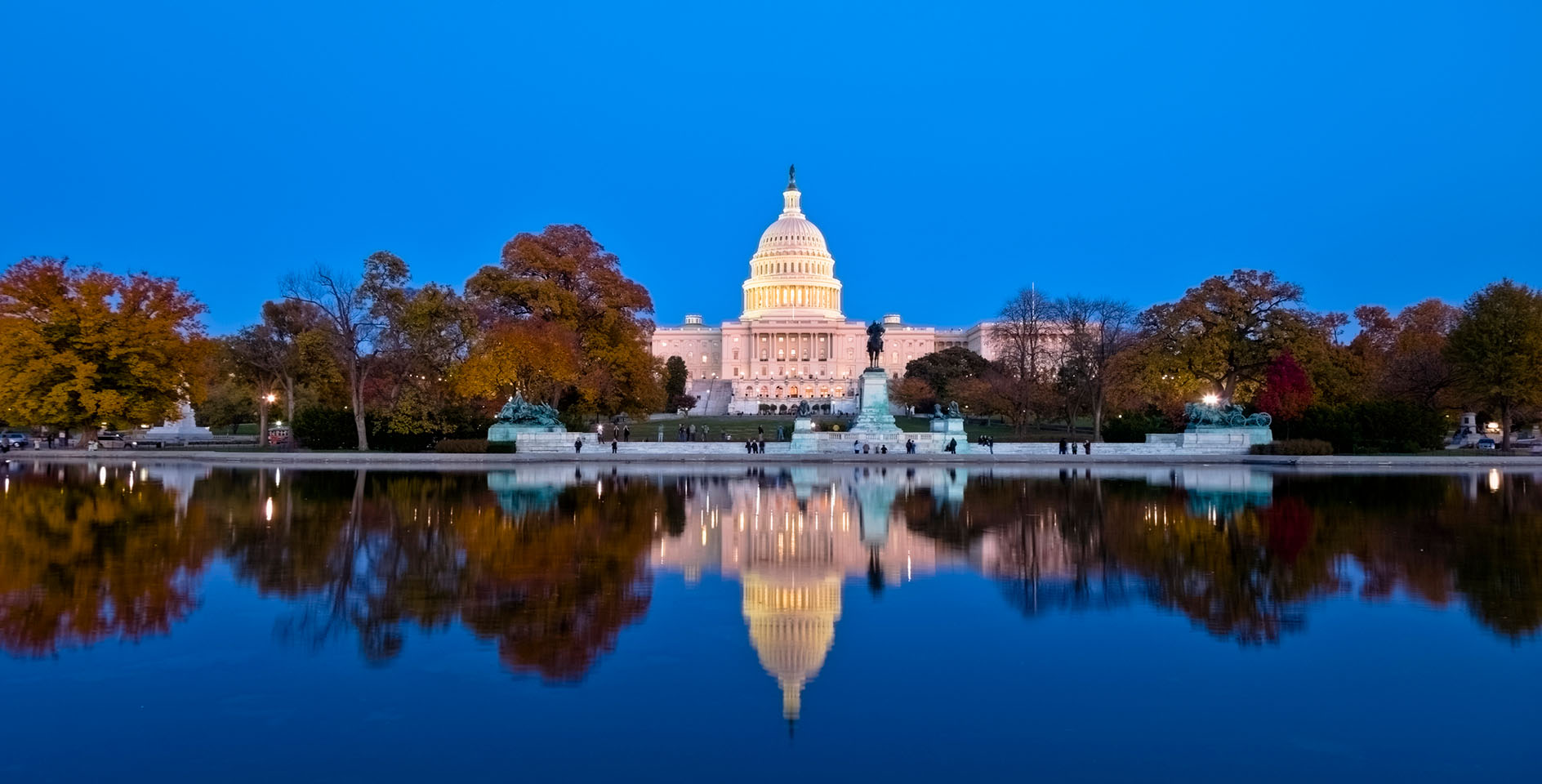This is the final post in a two-part series. You can read the first part here.
What does the call to action for racial reconciliation mean for us as believers in general and what might that mean for us at distinctively Christian universities?
Stan Norman, in a lecture he gave at Oklahoma Baptist University, reminded us,
We are people of redeemed words, redeemed feelings/passions, redeemed thinking, and redeemed actions. . . . As a Christian university, OBU is to reflect the reality of the Kingdom of Jesus. OBU must be a place where the ideals of Jesus are lived, taught, declared, and practiced. As a Kingdom university, OBU should be a place where the power of the gospel transforms enemies into neighbors, where those who speak, look, and act differently are transformed into brothers and sisters.
So, I believe that as Christ followers, as people of redeemed words, feelings and passions, thinking, and actions, we must continue to speak out on issues of racism, especially when they are brought to the forefront. When Nazi, neo-Nazi, and white supremacist groups march and demonstrate, we must clearly condemn such groups. But posting on social media is insufficient—it is often the extent of lazy activists who falsely believe that 140 characters is somehow equivalent to action and personal responsibility.
Starting with our communities
Speaking out should be followed with actions, and for Christians, that begins in the church and in the local community. Jarvis Williams, in a book he co-authored titled Removing the Stain of Racism from the Southern Baptist Convention, offers 15 exhortations related to removing the stain of racism from the SBC, which are good starting points for us to consider as we begin to think through our responsibilities. I summarize them in brief:
- Be quick to listen and slow to speak on race when we do not understand the issues; spend more time listening instead of trying to speak to, at, about, or for black and brown brothers and sisters.
- Pray for and support multi-ethnic church plants in our cities and communities.
- Stop making excuses for why our denomination still has the stain of racism.
- Stop limiting the racial reconciliation discussion to the black versus white divide in our convention. There are many gifted and underrepresented minority groups in Southern Baptist life.
- The movement of gospel-centered racial reconciliation within the SBC does not need an African-American, Asian, Latino, or a white savior. We need a multiracial partnership of churches working together.
- Enlarge our ethnic circles to include more black and brown believers.
- Recognize that black and brown people can minister to white people and teach them many things about many subjects, including race.
- Understand that black and brown Southern Baptists need white allies in the work of gospel ministry.
- Understand that the kingdom of God does not revolve around whiteness or blackness or brownness.
- Recognize that whiteness is not normal and everything else abnormal; neither the vast majority of the world’s population nor the vast majority of those who still need to hear and respond to the gospel are middle-class white Americans.
- Do not claim to view all people in a color-blind fashion. Black, brown, white, and everyone else in the SBC must acknowledge our differences and pursue love, unity, and reconciliation in the gospel.
- Do not play the race card just to serve our political agendas, to get television appearances, to increase Twitter followers, to gain more friends on Facebook, or go get invites to the big white or black and brown conferences.
- To gain credibility in black and brown contexts on matters of gospel reconciliation, we must befriend black and brown people lacking celebrity status.
- Recognize that the evangelical movement generally, and the SBC specifically, still lack credibility with many black and brown communities in part because of their historic failure to do the things mentioned above.
- Black and brown Southern Baptists are not off the hook. Black and brown Southern Baptist churches need to become more diverse and inclusive as well. The message of racial reconciliation in the gospel is a universal message for all people throughout the world who claim the name of Jesus Christ.
The authors also caution us against easy fixes, including defining or thinking of racial reconciliation as simply diversity. Williams and Jones write, “To define racial reconciliation as simply diversity is misleading. . . . The gospel includes both entry language (repentance and faith, justification by faith and reconciliation with God) and maintenance language (walking in the Spirit, reconciliation between Jews and Gentiles, and loving one another in the power of the Spirit).
Understanding corporate responsibility
I think too, that those of us from the white American culture have much to learn about corporate identity. In this sense, we are very unlike most of the rest of the world around us. We understand the world largely from an individualistic, highly personal worldview. The concept of being identified with and within a larger group or a culture is very foreign for most of us. And because of this, white American culture struggles mightily with the concept of corporate responsibility and the concept of systemic racism or systemic evil.
Tim Keller, in his essay, "Racism and Corporate Evil: A White Guy’s Perspective," gets to the core of the issue. He writes:
In Romans 5, Paul goes way beyond the idea that you are responsible for what other members of your family did and he goes way beyond the idea that you’re responsible for what other members of your culture do. He says you are responsible and you are condemned for what your ancestors Adam and Eve did. That is, just by virtue of being in the entire human race, you’re responsible for things that you didn’t individually do. You are condemned for what they do and then of course he turns around and says, ‘But by connection to Jesus Christ, you can be saved not because of what you have done, but through your connection to him by faith.’
The whole structure of the gospel is based on corporate responsibility. If you really want to go all the way down and say I’m only responsible for what I have done and only I have done, there is no gospel. . . . At the very heart of protestant understanding . . . salvation ends up being corporate. It’s not something we earn. It’s something that comes to us by being joined with Christ, but our sin is there not just because, of course, we do sin ourselves, but we’re also sinful and condemned because of our being part of the human race.
At the very, very heart of the Bible, at the heart of theology, not just what the Bible says about you and your family, not just what the Bible says about you and your culture, but what the Bible says about you and the human race — how sin happens, how salvation happens — there’s corporate responsibility. . . . [T]o some degree, Western people and white people in particular don’t realize to what degree they filter out all kinds of things the Bible says. They just don’t see them or they resist them because of that individualism. It’s not biblical. It’s not gospel.
Let’s talk then about systemic evil. Here’s what I mean by systemic: if you’re part of a community, there are systems that the whole community participates in. Things get done by the system, and you, by participating in the community, are to some degree getting that done. . . . You might be in the community and know exactly what the system is doing and be happy for it and actually actively doing it. Or secondly, you might kind of know what’s happening in the system and you don’t think too much about it, but you’re in favor of it. Or . . . you know what’s happening but you don’t do anything to stop it. Or . . . you don’t really know what’s happening and you don’t care and you don’t even care to try to find out about it.
[Take] for example, the Holocaust. At the top of the system, at the most responsible, you had people that had set up the death camps. Underneath that, you have guards and people who are in the death camps who were . . . following orders. . . . Underneath that, you had people in the town, civic leaders who know what was happening there but they didn’t want to know. . . . Then you go down to the citizen, the German citizen who had heard rumors but didn’t want to know, and didn’t do anything about it, and just [paid] their taxes and worked. [A]t the one end, you’ve got people who are more corporately responsible, at the bottom a little less corporately responsible, but . . . all those people died because the whole system was working and everybody who was in the system, everybody who wasn’t resisting the system, was part of it, because the system couldn’t kill all those people unless everybody was doing their job, even just looking the other way.
I share this lengthy quote because it gets to the heart of one of the biggest failures of American Christianity, particularly white American Christianity: a failure to understand the biblical perspective of corporate responsibility. Because of our rugged individualism and our love for the priesthood of the believer as opposed to the priesthood of believers, we carry in Protestantism a bent toward an unhealthy understanding of autonomy.
In so doing, we often miss the obvious when talking about issues of systemic problems when it comes to race in society. I share this quote also to suggest that beyond the starting points—the 15 suggestions offered by Williams—that we at places like OBU must begin to look at our own systems and structures honestly and openly. I am convinced that we must use the creative skills, talents, and intellectual gifts that God has granted us as different communities to work together toward solutions that foster shalom.
At OBU, we seek shalom. It is at the root of who we are. OBU is a distinctively Christian university that transforms lives by equipping students to pursue academic excellence, integrate faith with all areas of knowledge, engage a diverse world, and live worthy of the high calling of God in Christ.
In seeking shalom, we own up to the failures of the past. We reject outright the wrongs of our present state, and we reject the ungodly, evil vestiges of racism. We confront areas in our lives, institutions, and our own university where we find systemic bias and prejudice. We pledge to be patient with one another as we have frank and open discussions, allowing each other to make mistakes and learn from one another.
May we remember, as we navigate the waters ahead, that love covers a multitude of sins. So let us determine that we are going to love one another. May we embrace the best of our history and build upon the good foundations constructed by brave builders who have gone before us. And may God grant that our Christian communities be places of shalom.
Editor’s note: Racial unity is a gospel issue and all the more urgent 50 years after Martin Luther King Jr.’s death. Join the Ethics & Religious Liberty Commission and The Gospel Coalition at a special event, “MLK50: Gospel Reflections from the Mountaintop,” taking place April 4, 2018, in Memphis, Tenn. Key speakers include Russell Moore, Benjamin Watson, John Piper, Jackie Hill-Perry, Matt Chandler, Eric Mason and many others. Learn more here.







